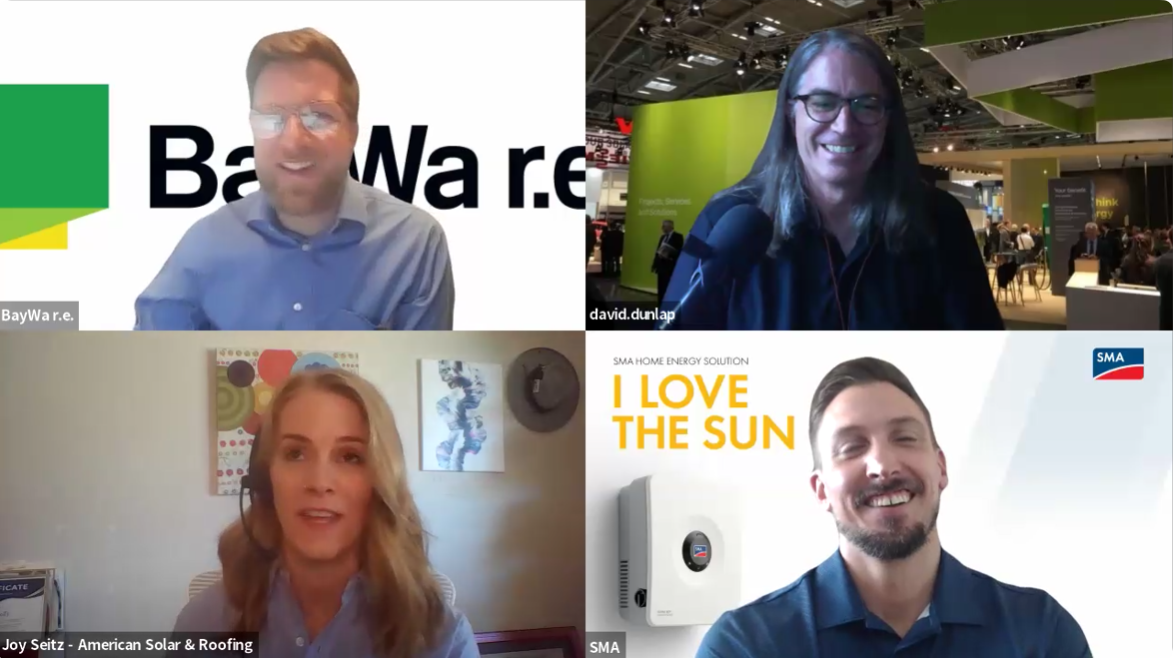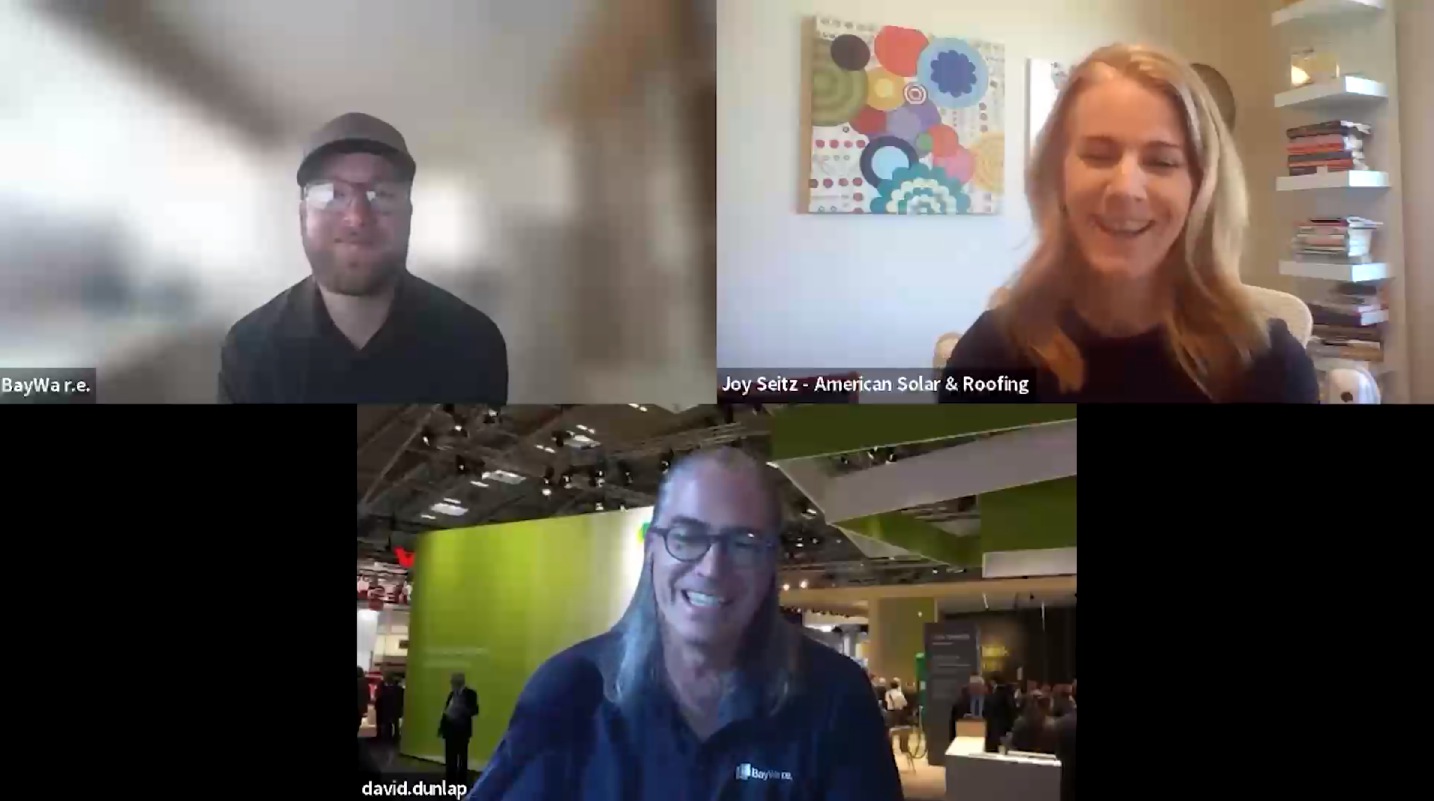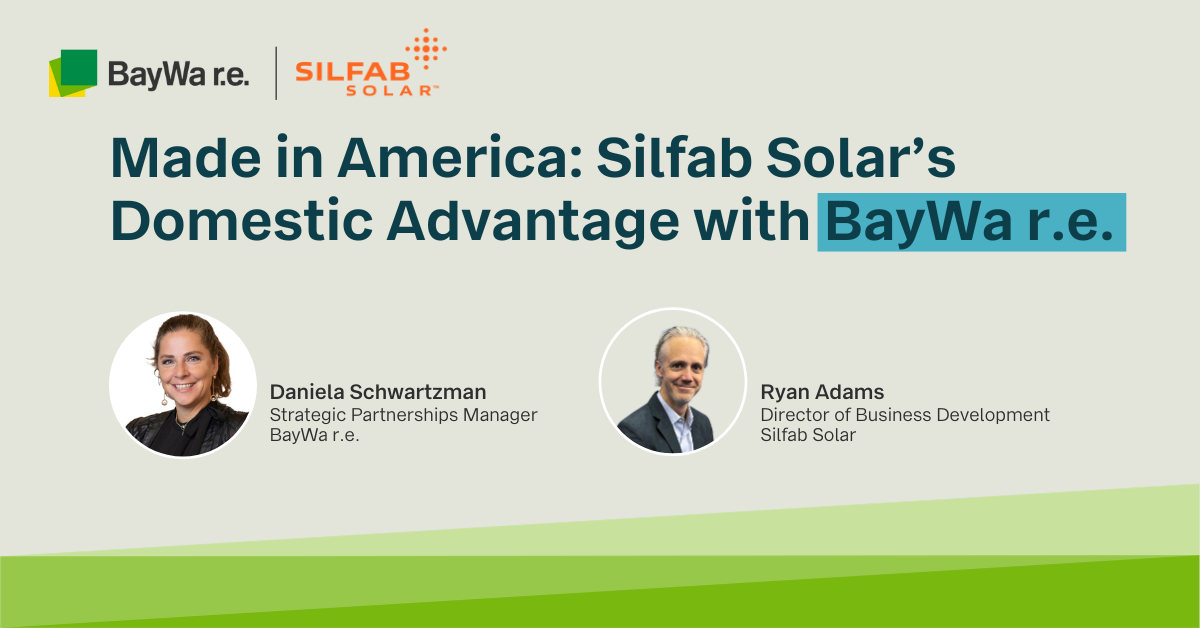
Providing top quality products from leading suppliers has been a staple of BayWa r.e. Solar Systems’ model since our inception. And often, our solar contractor customers ask us for recommendations on how to demonstrate quality, in a tangible way, for their conversations with homeowners and business owners.
Most manufacturer datasheets lead with details about performance characteristics, like energy conversion efficiency, and time-saving design features that reduce installation costs. This is a good place to start outlining the basic benefits of the products you are selling as part of your solar installations.
The second key piece is product certifications. In this case, it is valuable to know what the different certification numbers stand for and what each is evaluating. Then, you can incorporate this information into your sales presentations and demonstrate both your expertise and commitment to quality products, which translates to higher safety and reliability for consumers.
Module Certification
The module certificates discussed here, UL 1703 and IEC 61215, are both essential, but for very different reasons. UL 1703 mitigates fire safety risks for building owners, occupants, and safety officials. IEC 61215 provides some indication that a module can perform throughout a system’s expected lifetime, even if the module has not been on the market for 25 years or longer.
UL 1703
UL 1703 is a US safety standard that certifies how well a solar module resists fire once it has been set aflame. Modules undergo two tests when they are being evaluated for UL 1703 certification. The spread of flame test measures a module’s surface-burning characteristics, documenting how much of the surface area catches fire over a set time. The burning brand test measures the extent that fire penetrates a module when exposed to flames on the module surface or between the module and the roof.
In 2014, UL 1703 was revised from a product-specific test—which looked at how well solar modules resist flames—to a system-level test, which measured a module’s resistance to flames, in conjunction with the material used in the mounting system and the roof itself. The change addressed the fact that variables, such as roof slope and module orientation, affect fire performance, and the way a photovoltaic (PV) system resists fire in real-world conditions is far more important than the way a module resists fire in stand-alone test conditions. Since October 2016, UL 1703 has been required throughout the US.
IEC 61215
IEC 61215 is an international performance standard that reflects a solar module’s ability to withstand a battery of accelerated stress tests, identifying flaws that could cause premature failure in the field. The International Electrotechnical Commission, the nonprofit organization behind the IEC standard, had separate standards for crystalline silicon modules and thin film modules, but in 2016 it consolidated test requirements and procedures for both module types under IEC 61215.
Stress tests look for changes in mechanical and electrical characteristics when modules are exposed to cycling between heat and cold, high doses of ultraviolet radiation, load testing to simulate wind and snow, corrosive salt mixtures, and other types of extreme conditions that modules experience over 25 years in the field. IEC 61730 is an accompanying product design standard certifying that module components and assembly procedures meet safety specifications. Though not required by all US jurisdictions, these module standards have improved quality through voluntary compliance by manufacturers who distribute to US markets.
Inverter Certification
Inverter standards are evolving rapidly as utilities adjust to changing consumer demand and changing conditions on the grid.
UL 1741 SA
UL 1741 SA is a US safety and performance standard introduced in 2016, adding tests that measure how advanced inverters support grid reliability when network conditions change. UL 1741 SA represents a significant departure from previous technical requirements, which expected inverters to promptly disconnect from the grid during periods of instability. The standard conforms with relatively new state-level interconnection requirements, such as California’s Electric Tariff Rule 21 and Hawaii’s Electric Rule 14H, mandating smart inverter functionality. It remains voluntary in most parts of the country, but some industry experts believe it’s only a matter of time until the next review of codes and standards, when the authorities who regulate interconnection set permitting rules move to require advanced inverters in their communities too.
Testing looks at an inverter’s ability to perform functions like anti-islanding, voltage ride through, frequency ride through, and ramp rate control. It also measures how an inverter responds to control setpoints affecting power factor and reactive power output.
IEC 62109
Unlike the US and international standards for solar module certification, which are considerably different, the US and international inverter standards are substantially similar and continue to develop on a parallel track. According to UL engineer Tim Zgonena, IEC 62109-1 originated as a copy of UL 1741 before its publication in 2010 and the publication of IEC 62109-2 in 2011. As UL and IEC update inverter standards to reflect new applications for distributed energy resources, technical working groups review changes with the goal of keeping US and international standards in harmony.
Because modules and inverters are often distributed through international markets, you will encounter a variety of other product certificates, including those that test for electromagnetic emissions and hazardous waste control. Some state and national markets have their own designated standards. Other types of power electronic equipment, such as energy storage systems, also have separate safety and performance standards.
Testing Organizations
The US Occupational Safety and Health Administration maintains a list of nationally recognized testing laboratory programs that are eligible to test products and issue certification. Not all of these laboratories perform a full range of tests for all products, including solar modules and inverters, yet this still provides a way to validate that a laboratory listed by a manufacturer is legitimate.
Putting Quality to Work for You
We cultivate strategic relationships regionally and globally with a small number of industry-leading suppliers and curate a product set aimed at ensuring high quality, durable solar installations to satisfy your customers. In turn, sourcing products from BayWa r.e. Solar Systems provides you the opportunity to educate homeowners and business owners about the value of what you are offering them.




